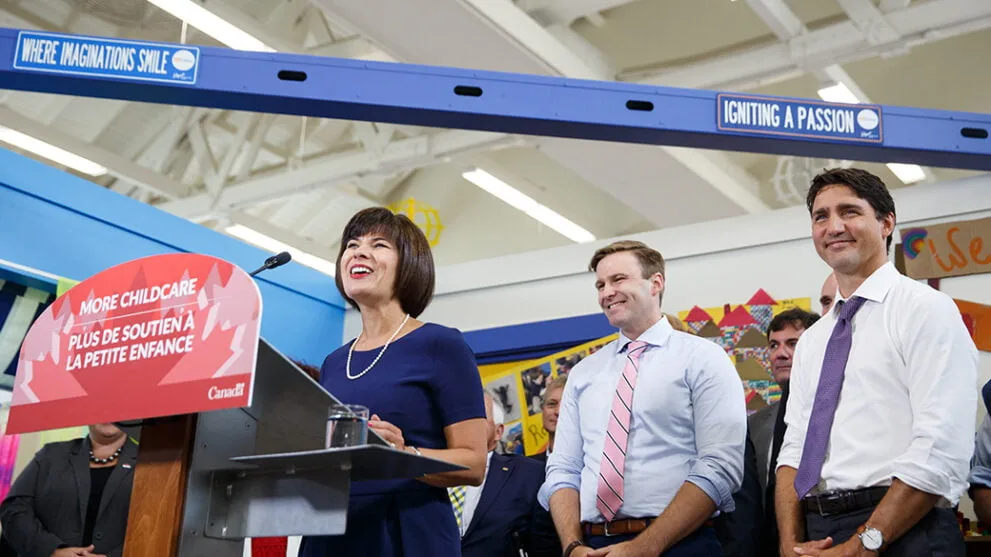Halifax – Families across Canada know that affordable child care is not a luxury—it is a necessity. That is why the Government of Canada is working with provincial, territorial and Indigenous partners to implement a Canada-wide early learning and child care (ELCC) system that will bring fees for regulated child care across the country down to $10-a-day on average by March 2026.
Jenna Sudds, Minister of Families, Children and Social Development joined Becky Druhan, Nova Scotia’s Minister of Education and Early Childhood Development, to announce a three-year action plan to improve and expand early learning and child care services across the province under the Canada–Nova Scotia Canada-wide Early Learning and Child Care Agreement. The plan sets a road map for strengthening and expanding the child care sector in the province and improving access to high-quality, affordable, flexible and inclusive child care for families.
Over the course of the three-year plan, Nova Scotia’s Canada-wide ELCC Action Plan 2023–2024 to 2025–2026 outlines spending of more than $440 million in five areas:
Affordability
- More than $285 million towards the goal of achieving regulated child care fees of $10-a-day average by March 31, 2026. The Government of Nova Scotia has already reduced child care fees by an average of 50% as of December 2022 saving families up to $6,000 per year, per child. When combined with the Child Care Subsidy Program, this resulted in more than 3,000 families having access to free child care.
Access
- $52 million towards the creation of 9,500 new regulated child care spaces by March 2026. In Nova Scotia, 3,861 new spaces have already been created as of December 31, 2023.
Quality
- More than $105 million toward an early childhood educator (ECE) compensation framework, including ongoing support for the ECE wage grid introduced in November 2022, and implementing retirement and health benefits for all ECEs and ELCC workers in the regulated sector.
Inclusion
- More than $30 million to implement an inclusive early learning and child care strategy that focuses on respect for diversity and strives for equity, inclusion and accessibility across the child care system; as well as continuing to support inclusion measures for diverse and vulnerable communities, including children with additional needs. Nova Scotia is committed to creating inclusive spaces to support diverse and vulnerable children and families, including children with disabilities and children needing enhanced or individual supports, Indigenous children, Black and other racialized children, children of newcomers, and official language minorities.
Administration
- $23 million to support the implementation and administration of the Canada–Nova Scotia Canada-wide Early Learning and Child Care Agreement, including building targeted capacity and additional resources within the Government of Nova Scotia to support the implementation of initiatives, and enhanced data collection and reporting.
Building a Canada-wide early learning and child care system that works for families in every region of the country is a key part of the Government of Canada’s plan to make life more affordable for families, while supporting a strong workforce and growing the economy.
“Our government remains committed to ensuring that every child in Nova Scotia has access to affordable, inclusive and high-quality child care. Our partnership with the government of Nova Scotia is working. Together we have reduced fees for families and created more spaces. The plan announced today will ensure we reach our targets of reducing fees to $10-a-day and creating 9,500 spaces by 2026.” – Jenna Sudds, Minister of Families, Children and Social Development








